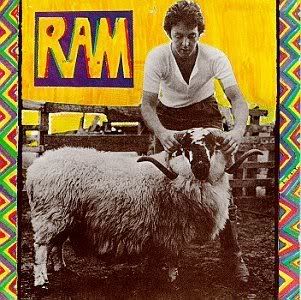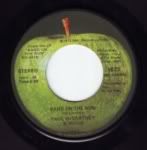Post by Pete70s on Nov 21, 2007 15:39:19 GMT -5
I have a very different twist on the "Contender" feature for you this week. Instead of covering a particular artist or group, I've decided to cover a phenomenon that I have a strong interest in. I've become quite fascinated with this "movement" over the past year or so (although it stems from a style of music that I've loved my whole life), and I've done quite a bit of research on it. There are a lot of websites devoted to this scene, and some of them have streaming audio to listen to. Since it covers a lot of artists who will only see the Hall of Fame if they buy a ticket, I'll grant them "Contender" status!
The "Northern Soul" Movement
For the typical American fan, it makes sense to think of Northern Soul in terms of the sweet, mellow sounds of Detroit, Philadelphia, and Chicago soul, versus Southern Soul- the grittier, blues-based soul of Memphis, Muscle Shoals & New Orleans (and, for years, I thought that was what "Northern Soul" meant). This is not the case, however. "Northern Soul" is a UK derived term, and while much of the music comes from the Northern cities of the US, it really has nothing to do with US geographic location.
"Northern Soul" was a term coined by a London record store owner named Dave Godin in the late 60's, who looked at the record-buying trends of R&B fans who came down from the north of England. He observed that most of them had no interest in the popular soul music that was currently on the American charts. Instead, they sought out obscure, up-tempo American soul records from the early to mid 60's. Many of them by artists that never charted at all in the States, or only made the R&B charts. Some were by artists that had (or would later have) bigger hits in the US (such as Eddie Holman and Major Lance). Occasionally, an American Motown failure (if you look at a Motown singles discography, you'll see that only a small percentage of the singles Motown released was successful), as well as lesser-known singles on Chess/Checker, Okeh, Cameo/Parkway (check out disc four of the C/P box set for some absolute gems!), and other American major labels.
But the heart of the movement were those little-known singles on nothing labels, recorded in somebody's basement studio and distributed in small numbers (sometimes only in the hundreds). These records were not lacking in quality, and certainly could hold their own musically alongside the popular hits of the day. Unfortunately, the balance of power in the record industry shifted toward Motown's heavy hitters (Supremes, Temptations, etc...), and radio airplay, as well as distribution, was difficult against that kind of competition (especially during an era when it was still hard to get black records on the radio in some markets). Occasionally, Motown would buy out smaller labels (such as Golden World and Ric Tic) and add their artists to their roster, but many of the records would go nowhere.... In the US, at least.
By the end of the day, however, most of the singers would consider themselves failures as they went back to their day jobs. They would have no idea that across the Atlantic, in the country that gave us The Beatles and the British Invasion, their records would be highly sought after and worth a lot of money to these English fans. One popular Northern Soul artist, Edwin Starr (who would have a handful of U.S. hits, but would not achieve the legendary status of some of his contemporaries), would move to England and live the rest of his life there, performing for British crowds who loved his music. Another case in point is the Velvelettes, an American girl group signed to Motown subsidiary V.I.P. in the 60's. Their 1966 single "These Things Keep Me Loving You" made the British Top 40 in 1971 (after the group had broken up), due to it's popularity in the Northern Soul scene.
Despite the popularity of these records, they were not always easily attainable. Frank Wilson was a producer for Motown, who attempted a singing career with a single "Do I Love You" in the mid 60's. Not happy with the recording, he chose not to release it and had the alleged 250 demo discs destroyed. A couple of known copies survived, and one of them fetched £15,000 several years ago (and is listed among the rarest records in the world).
What attracts me to this "movement" the most is that it holds a lot of the beliefs that I hold dear. That a record doesn't have to be a "chart hit" or get played to death on radio to be a great record. In fact, many Northern Soul DJ's would stop playing certain records at their all-night parties when they would start to get radio airplay. Not because they've "gone mainstream" (a common attitude in the Punk genre), but because they can turn their attention towards other songs and artists that aren't getting radio play and give THEM exposure. As a person who eschews overplayed radio hits and is always looking for new songs to check out, I like that idea... It is a movement fueled by a passion for music and record collecting, not by current trends and fashions. Plus, I've ALWAYS loved 60's soul music...
Over the years, it has become debated what qualifies as a "Northern Soul" record. White artists outside the "soul" genre, such as Gale Garnet and Mel Torme, have released records that have been considered "Northern Soul", due to the tempo and "feel" of the records. The fact is that as time went on, many DJ's incorporated slower or jazzier numbers, even ballads, into their repitoire, and they became accepted in the clubs alongside the "stompers".
Though the scene declined in popularity in the early 80's, there are still underground "Mod" revival clubs in England and the U.S. that cater to fans of this music, many of whom were not even born when these records were made. I know in Boston there are a couple of clubs that mix Northern Soul with modern Brit-pop and indie, a friend of mine from my DJ days spins at one.
It's a pretty cool thing to be able to go into a nightclub, in this day and age, and hear Marvin Gaye's "Baby Don't You Do It" pounding out of the sound system....
The "Northern Soul" Movement
For the typical American fan, it makes sense to think of Northern Soul in terms of the sweet, mellow sounds of Detroit, Philadelphia, and Chicago soul, versus Southern Soul- the grittier, blues-based soul of Memphis, Muscle Shoals & New Orleans (and, for years, I thought that was what "Northern Soul" meant). This is not the case, however. "Northern Soul" is a UK derived term, and while much of the music comes from the Northern cities of the US, it really has nothing to do with US geographic location.
"Northern Soul" was a term coined by a London record store owner named Dave Godin in the late 60's, who looked at the record-buying trends of R&B fans who came down from the north of England. He observed that most of them had no interest in the popular soul music that was currently on the American charts. Instead, they sought out obscure, up-tempo American soul records from the early to mid 60's. Many of them by artists that never charted at all in the States, or only made the R&B charts. Some were by artists that had (or would later have) bigger hits in the US (such as Eddie Holman and Major Lance). Occasionally, an American Motown failure (if you look at a Motown singles discography, you'll see that only a small percentage of the singles Motown released was successful), as well as lesser-known singles on Chess/Checker, Okeh, Cameo/Parkway (check out disc four of the C/P box set for some absolute gems!), and other American major labels.
But the heart of the movement were those little-known singles on nothing labels, recorded in somebody's basement studio and distributed in small numbers (sometimes only in the hundreds). These records were not lacking in quality, and certainly could hold their own musically alongside the popular hits of the day. Unfortunately, the balance of power in the record industry shifted toward Motown's heavy hitters (Supremes, Temptations, etc...), and radio airplay, as well as distribution, was difficult against that kind of competition (especially during an era when it was still hard to get black records on the radio in some markets). Occasionally, Motown would buy out smaller labels (such as Golden World and Ric Tic) and add their artists to their roster, but many of the records would go nowhere.... In the US, at least.
By the end of the day, however, most of the singers would consider themselves failures as they went back to their day jobs. They would have no idea that across the Atlantic, in the country that gave us The Beatles and the British Invasion, their records would be highly sought after and worth a lot of money to these English fans. One popular Northern Soul artist, Edwin Starr (who would have a handful of U.S. hits, but would not achieve the legendary status of some of his contemporaries), would move to England and live the rest of his life there, performing for British crowds who loved his music. Another case in point is the Velvelettes, an American girl group signed to Motown subsidiary V.I.P. in the 60's. Their 1966 single "These Things Keep Me Loving You" made the British Top 40 in 1971 (after the group had broken up), due to it's popularity in the Northern Soul scene.
Despite the popularity of these records, they were not always easily attainable. Frank Wilson was a producer for Motown, who attempted a singing career with a single "Do I Love You" in the mid 60's. Not happy with the recording, he chose not to release it and had the alleged 250 demo discs destroyed. A couple of known copies survived, and one of them fetched £15,000 several years ago (and is listed among the rarest records in the world).
What attracts me to this "movement" the most is that it holds a lot of the beliefs that I hold dear. That a record doesn't have to be a "chart hit" or get played to death on radio to be a great record. In fact, many Northern Soul DJ's would stop playing certain records at their all-night parties when they would start to get radio airplay. Not because they've "gone mainstream" (a common attitude in the Punk genre), but because they can turn their attention towards other songs and artists that aren't getting radio play and give THEM exposure. As a person who eschews overplayed radio hits and is always looking for new songs to check out, I like that idea... It is a movement fueled by a passion for music and record collecting, not by current trends and fashions. Plus, I've ALWAYS loved 60's soul music...
Over the years, it has become debated what qualifies as a "Northern Soul" record. White artists outside the "soul" genre, such as Gale Garnet and Mel Torme, have released records that have been considered "Northern Soul", due to the tempo and "feel" of the records. The fact is that as time went on, many DJ's incorporated slower or jazzier numbers, even ballads, into their repitoire, and they became accepted in the clubs alongside the "stompers".
Though the scene declined in popularity in the early 80's, there are still underground "Mod" revival clubs in England and the U.S. that cater to fans of this music, many of whom were not even born when these records were made. I know in Boston there are a couple of clubs that mix Northern Soul with modern Brit-pop and indie, a friend of mine from my DJ days spins at one.
It's a pretty cool thing to be able to go into a nightclub, in this day and age, and hear Marvin Gaye's "Baby Don't You Do It" pounding out of the sound system....







